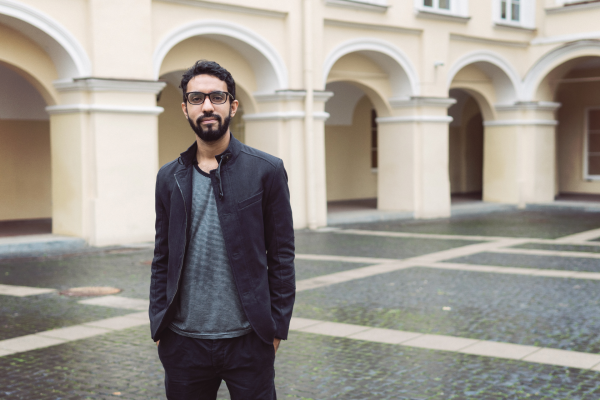
Ian Diaz
Student of IIRPS VU Eastern European and Russian Studies master's programme
Ian, can you tell us a bit about your background? Where does your interest in politics come from?
I was 19 years old when I first joined a grassroots organization. It was the first time I involved myself in any political activity. Back then, apathy and mistrust were common attitudes towards politics. I was not any different. I’ve always been interested in philosophy and sociology, therefore it was appealing to meet people with similar interests.
Eventually, not only through the political education I received but mostly by taking an active role in what was going on, in the country and social movements, I was confronted with a reality until then unknown to me. A hidden side of our history and reality itself. No one can stay indifferent after. Since then I always felt a deep commitment to politics.
You came here from Honduras, what was your first impression of Vilnius? Did you like it?
The most common question that Lithuanians asked me when I arrived was, “Are you cold?” to which I always answered “YES!”. Soon after I usually could hear someone saying, “Well it is going to get worse…”. I think is part of a secret initiation ritual. After a couple of winters here, I am the one asking the questions.
What are your academic interests? What will you be writing your thesis on?
Early on, from the inside of a bus, framed by the window, I saw three ladies waiting in line. Short, with dark hair and brown skin, they looked opposite to my narrow-minded ideas about how Lithuanians should look like.
Maybe it was their physical resemblance to me what sparked my curiosity, perhaps it was the need to defy my preconceived views about Lithuania, whatever it was, I felt suddenly interested in learning more about them.
I soon found out that those women belong to the Romani-Gypsy community in Vilnius. The “Gypsies” or “Čigonai” as they are called in Lithuanian. The Romani community faces rejection from the rest of the Lithuanian society. I believe this has to with the “nation-building process” Lithuania started in the 90s. My thesis revolves around this idea.
It is your last semester of the Eastern European and Russian Studies programme, how can you evaluate your experience here at the Institute?
I have definitely grown after this process, not only academically, but also personally. I have met wonderful people from who I’ve learned a lot. I could not ask for more.
What are your plans for the future? Are you planning to stay in Lithuania?
I’m applying for different things and developing some projects on my own, a documentary on nationalism and a photo essay about “new” Lithuanians, so I am definitely still going to be around.
As we know, you are a photographer and a film maker, can you tell us more about that?
I see art as part of my political interests. A way to reflect and engage in society with a fresh set of eyes every time. I have developed some projects in Honduras and Central America and, as I said before, I am working on some ideas in Lithuania. For me, they are not two distinctive subjects, politics and art, but one and the same. I understand one through the other and vice versa.







